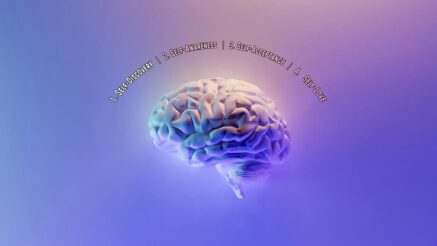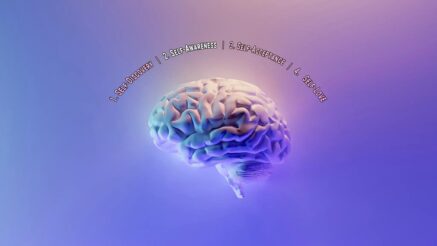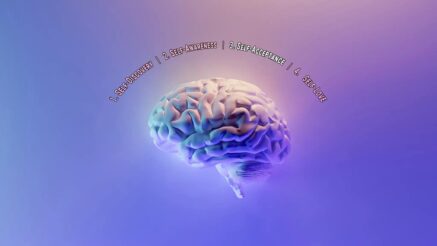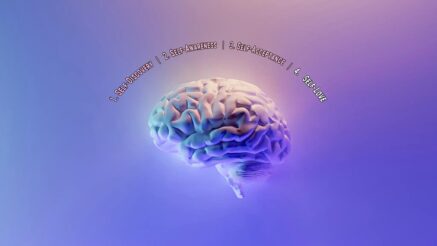Today, August 19, 2021, is my one-year anniversary of receiving the results from my adult autism assessment and a diagnosis for Autism Spectrum Disorder (ASD). My name is Tessa and my pronouns are they/she. I’m 30 years old, working as a professional web developer, married for 6 years, and a parent of a toddler. I’m also actually autistic.
The path to self-love starts with self-discovery and passes through self-awareness and self-acceptance. For me, self-discovery began with autism education; when I learned about the traits and characteristics of autism and realized that this is why I struggled so much my entire life.
“One way you know you’re autistic is that once you learn about autism, nothing has ever made more sense in your life. It just fits, like nothing else ever has. Autism becomes your identity, a place of calm in a noisy and unsafe world. A place to finally call home.” – Cynthia Zuber (@TheNeurodiverseWoman)
This article is about the beginning of my self-discovery journey with autism, when I first learned about autism, the steps I took after suspecting I had it, and the emotional whirlwind that came with a pending autism assessment and diagnosis.
Autism Education
In September 2018, the local book club that I was a member of chose The Rosie Project by Graeme Simsion. It is a love story and the protagonist is a white man named Don Tillman who is a professional geneticist and an undiagnosed autistic.
The book wasn’t even the most interesting part. While reading it, I related to Don the most. With the way it was written, I felt like not only did I understand his thought processes, but I agreed with them. Logically, he was right. I would also do things the way he did. I also thought about things the way he did. I also made decisions the way he did.
So when our book club met that month, I was so ready to talk about how relatable this character was. You can imagine my surprise when everyone was saying how bizarre he thought and behaved, why anyone would think like that. Obviously, this triggered rejection-sensitive dysphoria (RSD) in me and I was effectively mute for the remainder of the discussion. If this is how my “friends” talked about a fictional autistic character, I did not want to find out how they’d talk about/to me if they knew I was just like him.
The First Step Toward My Autism Diagnosis
Nearly a year later, December 2019, is when I finally started counseling for my mental illnesses. I had been thinking about starting for a long time, but kept procrastinating until someone in a supportive parenting group on Facebook wrote, “If you are seeing this message, STOP SCROLLING! Do one thing that you’ve been putting off RIGHT NOW.”
I’ll forever owe that stranger something because they changed my life for the better. I stopped scrolling and sent that email to the counselor to become a new patient.
In April 2020, I finally blurted out to my counselor that I thought I might be autistic or have ADHD, so I was given information for Dr. Glen Getz at Neuropsychology Specialty Care, a local neurocognitive psychologist, where I could receive an evaluation.
I sat on that information for 2 months until June when I finally made an appointment for an adult autism assessment.
Autism Self-Diagnosis is Valid
Two weeks before my appointment, I was getting nervous. What if I acted normal too well (also known as “masking”) that they wouldn’t see the “real me?” What if I exaggerated or pretended and I wasn’t actually autistic? I wanted an accurate test, with accurate results, because I wanted to know myself. I needed to know about myself. I spent a long time on the internet learning all I could about autism, trying to reassure myself that this assessment was worth it.
One week before my appointment, I made a seemingly flippant decision that I didn’t care what my evaluation or results would say. I role-played (when alone of course) how I’d react if I was told I was autistic vs if I wasn’t.
I learned I felt relieved to be told that I was and was distressed if I was told I wasn’t. I realized that I wanted to be autistic because that would explain so much about my life.
It wasn’t about getting special treatment or being a unique snowflake, I have a special interest in data, which is why I wear a FitBit watch that monitors my vitals and I weigh myself every day. I also needed to know why I struggled and that it wasn’t just because I was a broken human being. I wanted to believe that I was born this way and that it wasn’t a result of a traumatic childhood.
So yes, I had self-diagnosed as autistic before I had my evaluation.
Anxiety Before the Storm
The day before my adult autism assessment, I could no longer logic my feelings away. For as much as I want and for as hard as I tried, emotions cannot be rationalized.
I was so totally full of shit when I said the results wouldn’t matter to me because I feared I’d be told I wasn’t autistic when, as I mentioned earlier, I really wanted to be. I took many different online autism assessments to validate myself again and again that:
- It is worth going through this autism evaluation, and;
- I might actually receive an autism diagnosis.
I went to bed terrified but slightly more comfortable thinking this will be worth it.
My Adult Autism Assessment
On July 29, 2020, I had the worst anxiety attack of my life. According to my FitBit watch that monitors my heart rate, I spent 2 hours and 36 minutes in exercise zones. Spoiler alert, I did not exercise at all that day, this was all nerves. At its worst, my heart rate was above 130; this is what anxiety looks like.
I was afraid that I’d pretend to be normal too much that he wouldn’t be able to notice my autistic traits. I was also afraid that I’d try too hard to exaggerate because what if I wasn’t autistic?
My appointment with Dr. Getz was scheduled for 10 am and because we were in the middle of the COVID-19 pandemic’s first wave, I did not bring my partner and had to drive myself.
When I arrived, I decided to be honest, to let the doctor see me and not pretend anymore. I did forget to introduce myself and instead, I described how nervous/anxious I was and how my morning started.
The whole neurocognitive assessment was about 6 hours long. It included an interview, a bunch of tests, and a questionnaire. I really did try my hardest, but there were some real stumpers.
My Adult Autism Diagnosis
I received my results on August 19, 2020, and guess what? I’m autistic (299.00 in the DSM-5 / F84.00 in the ICD-10). It turns out some of the questions I thought I was good at, I’m actually a dumpster fire. I seemingly had a distorted view of myself and my capabilities. Who knew?
I learned about some strengths and weaknesses with my different executive functions and knowing about them allows me to find creative accommodations for them.
Stay tuned for my next article on how I achieved self-acceptance in the last year since discovering I’m autistic.
“We don’t grow out of autism, but we do grow into it. Through late diagnosis, we can gain greater self-awareness and self-acceptance. Diagnosis can give closure on traumatic lives and lead to miraculous transformations.” – Autism Support Community (@in_jenns_closet)




